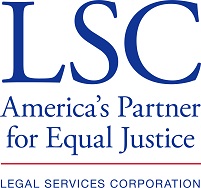Table of Contents
Getting Your Personal Property Back
If you were evicted or your landlord claims you abandoned your rental unit, it may be difficult to get back any property you left behind. The landlord may even be able to charge moving and storage fees. Most landlords just want you to take your possessions, so they can have another tenant move in, and you may be able to work something out. You have rights, but you must act quickly. Read this article for more information.
How do I get my personal property?
After abandonment or a court-ordered eviction, the landlord is supposed to store any property you leave behind somewhere safe for at least 15 days. Your property should not just be thrown out or put on the curb, unless it is hazardous or perishable. Your landlord cannot refuse to give back your property until you pay rent, but your landlord may be able to charge you moving and storage fees in order for you to get your property back. If the landlord does charge storage fees because the property is still in the apartment, the fees will likely be equal to the daily rent. The landlord cannot charge you storage fees for necessary items such as prescriptions, personal documents or clothing if you request these things back within five business days.
Most landlords just want you to pick up your property and may not charge you any fees if you request your property back soon after the eviction or after abandoning the apartment. It is best to retrieve your property as soon as you can, at a time that is good for you and the landlord. To set this up, see our flyer
What if the landlord refuses to give me my personal property?
If you were evicted by court order and the landlord won’t give you your property back or demands too much money, ask for a court hearing within 15 days of your eviction. A hearing request form should have been attached to the Order of Restitution (the order evicting you). You can also get this form from the court clerk, or here. If you file this form, a hearing will be scheduled. The landlord may want to work with you instead of going back to court. But if not, you can talk to the judge about the landlord’s refusal to return your property.
If you abandoned the rental unit and there was no eviction case, you cannot ask for a hearing. In the case of abandoning the unit, the landlord must post a notice to the rental unit and mail a notice to your last known address regarding your personal property. The notice will give you 15 days to claim any property you left behind, but you must pay all moving and storage fees first. Once the 15 days has passed, the landlord may have the right to sell or dispose of the remaining property. If the landlord did not follow these steps before he or she disposed of your property, you can sue the landlord in Small Claims court.
Can the landlord legally keep my property?
You are entitled to have certain items returned to you within 5 business days of an eviction at no cost. These items are clothing; identification; financial documents, immigration documents, and employment documents; documents about public benefits you receive; and medical information, prescription medication, and any medical equipment. If you do not request to have the above property returned within 5 business days, you may have to pay the storage costs.
The landlord may also dispose of hazardous or perishable items and send pets to a shelter (or “animal control”) immediately after a tenant is evicted.
If the tenant does not claim the remaining property within 15 days after the landlord sends the notice, the landlord can sell that property at a public auction. The landlord must mail notice (at “last known address”) to the tenant. The tenant can bid on the property but then must pay to get it back. If the tenant has not requested either return of her property or a court hearing within 15 days after being evicted, the landlord can sell even exempt items. If the tenant goes to the sale, she can designate which items are sold first and then recover any items remaining after the cost of moving, storage, advertising and conducting the sale are paid.
The information in this site is not intended as legal advice.

